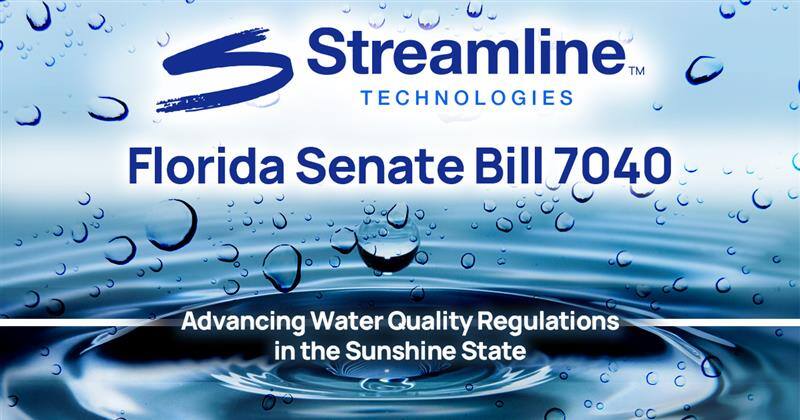Learn how Senate Bill 7040 advances Florida’s water quality efforts by strengthening stormwater regulations, reducing pollution runoff, and safeguarding the health of the state’s vital waterways.
Florida’s waterways are essential to its economy, environment, and public health. Recognizing the need for stricter stormwater management, the Florida Legislature passed Senate Bill 7040 to increase nutrient removal from stormwater.
This bill ensures that updated Florida Department of Environmental Protection (FDEP) rules remain effective and enforceable, shaping the future of stormwater regulations across the state.
What Senate Bill 7040 Means for Stormwater Management
Senate Bill 7040 ratifies Rule 62-330, Florida Administrative Code, which governs environmental resource permitting. The updates included in this rule aim to mitigate stormwater pollution by enforcing more stringent treatment and monitoring standards – Key changes include:
- Stronger Minimum Stormwater Treatment Performance Standards: Stormwater facilities must demonstrate an 80% reduction in total suspended solids (TSS) and the greater nutrient load reductions of the criteria described below:
- Nutrient reductions of 80% and 55% in the average annual loading of total phosphorus and total nitrogen, respectively, from the proposed project.
- The proposed conditions average annual loading is less than the predevelopment nutrient loading.
- Higher Treatment Standards for Outstanding Florida Waters (OFWs): Projects located within HUC12 subwatersheds containing an OFW and are located upstream of the OFW must demonstrate a 95% reduction in TSS and the greater nutrient load reductions of the criteria described below:
- Nutrient reductions of 90% and 80% in the average annual loading of total phosphorus and total nitrogen, respectively, from the proposed project.
- The proposed conditions average annual loading is less than the predevelopment nutrient loading.
- Improved Monitoring and Maintenance Requirements: Entities responsible for stormwater systems must conduct more frequent inspections and adhere to rigorous reporting standards.
- Clarifying Grandfathered Projects: Additional clarification was incorporated into Section 3.1.2(e)3 of the Applicant’s Handbook Volume for grandfathered activities.
These changes are designed to reduce stormwater pollution, enhance environmental resilience, and support Florida’s long-term sustainability efforts.
The Importance of Water Quality in Stormwater Management
Florida’s unique hydrology makes it particularly vulnerable to stormwater-related pollution. Without effective management, runoff can carry excess nutrients, sediments, and contaminants into lakes, rivers, and coastal waters – thus leading to harmful algal blooms, habitat degradation, and water supply issues.
With the passage of Senate Bill 7040, developers, engineers, and water resource professionals must now incorporate these stricter guidelines into their project designs, ensuring that stormwater systems function effectively to reduce pollution and enhance environmental resilience.
Pushing the Boundaries of Innovation in Stormwater Management
At Streamline Technologies, we recognize the importance of water quality in stormwater management.
That is why we are thrilled to share that our team is hard at work integrating Water Quality into StormWise™, our advanced hydrologic and hydraulic modeling software, with a planned release of later this year!
As we continue to expand StormWise’s capabilities, we invite you to stay connected for updates on our latest software releases, features, and enhancements – Or if you want to learn more about how StormWise™ can support your needs, contact our team today!
TAGS
Blogs